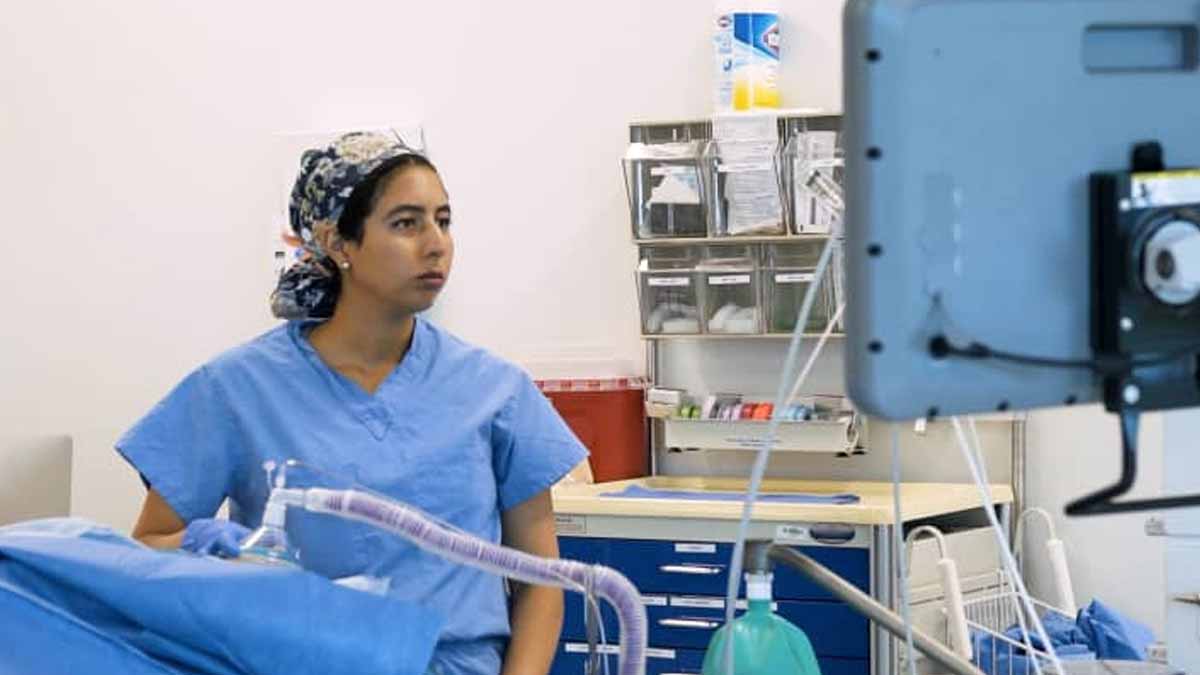Earning big without a medical degree can be real when the path is precise, the strategy is calm, and the choices stay flexible. As a licensed anesthesia practitioner, she developed a profession earning above $300,000 while safeguarding her vitality and objectives within medical facilities. She transitioned from employed positions to independent agreements, maintained minimal expenses, and prioritized autonomy. The formula blends specialized skills, disciplined money habits, and simple guardrails against burnout. The result feels steady, scalable, and surprisingly human.
What a Certified Anesthesiologist Assistant Really Does
A certified anesthesiologist assistant works beside an anesthesiologist in the operating room, monitors patients closely, and supports airway and pain management before, during, and after surgery inside the hospital. The role demands precise protocols, clear communication, and constant vigilance; it also rewards responsibility with solid pay and steady demand across many surgical services and care teams.
The training is rigorous yet shorter than medical school. After a bachelor’s degree, a master’s in anaesthesiology opens the door to CAA credentials. This route focuses on clinical practice, supervision, and safety. It builds deep procedural skill without years of residency. Because programs target operating-room readiness, graduates step into teams smoothly and deliver value immediately.
That value translates into income. In her salaried phase, she cleared about $200,000 by adding overtime and even 24-hour shifts. Then came a shift of mindset: she still prized security, yet she wanted balance. So she explored contracts, compared rates, and set guardrails. With clearer limits, her pay rose while her schedule became more predictable.
Why Working in a hospital Pays Without Med School
In 2024, she left a fixed role for traveling CAA contracts. Contracts improved leverage, so rates climbed, and weeks stabilized near 40 hours. She still helps when coverage is thin, which keeps teams flowing. The change unlocked earnings above $300,000, while her time felt better structured and less draining.
That choice followed years of a scarcity mindset. In 2023, she told CNBC Make It she prepared for the worst and grabbed overtime to stay ready. Long days and 24-hour stretches built savings and confidence. The habit proved useful, yet it also carried a cost: fatigue. She wanted a way to earn well and breathe.
Today, she still chases excellence, not exhaustion. She could reach about $500,000 by stacking overtime like before, yet she refuses to burn out. She now works smarter, not longer. When the team needs help, she steps in. When the margin is thin, she steps back. Hitting $300,000 feels enough.
From Debt Freedom to an Aggressive Investment Strategy
The pivot worked because cash flow moved with intention. After crushing nearly $124,000 in student loans in 2023, she redirected the same intensity into investing. Clinical income rooted in the hospital funded a plan that felt automatic. The new priority was growth with guardrails, so momentum didn’t fade when work eased.
She now invests about 40% of pre-tax income into retirement and a brokerage account. The contributions compound steadily, and fees stay low. With that discipline, her total investments reached $500,000 in January 2025. The number reflects months of routine choices: pay herself first, keep risk measured, and avoid lifestyle bloat when pay rises.
Early on, she aimed for $2 million and a quick exit. The target helped, but the timeline was rigid. Now, she favors sustainable growth and options. If she wants to slow by age 50, she can. If she wants to keep going, she will. Flexibility reduces stress and supports smarter risk.
Inside the hospital : Balancing Shifts, Pay, and Burnout
Contract work brought better control. She built weeks around a consistent baseline, then added shifts when it made sense. That structure helped her rest, plan travel, and maintain focus in the operating room. Because she protects recovery, her performance stays sharp and her team benefits from reliable, present energy.
The mental switch matters too. She wants to make more, but not at any cost. Overtime has its place, and boundaries have theirs. With a higher rate, she earns well without chasing every hour. The choice shows up in her mood: calmer, kinder to herself, and confident about tomorrow.
Confidence compounds. She says she feels secure and can exit situations that don’t align. That autonomy keeps work healthy and relationships strong. When life needs a little extra, she can treat her partner or herself without anxiety. The extra oxygen changes everything: fewer rushed decisions, more clear thinking, and a steadier pulse.
Mobility, Lifestyle Choices, and a Redefined Sense of Enough
Her map reflects motion and intent. She began in Florida, planned to buy, then paused. A move to Georgia in 2023 led to a six-month contract in 2024. Afterward, she headed to New Mexico. The route wasn’t random; it matched better pay, wider experience, and a life designed around flexibility.
She still lives within her means. She shares rent with her partner and drives a Toyota Corolla. She saves hard for the future and spends on joy with care. Big international trips pair with backpacking and camping. The mix keeps costs in check while memories grow. Practical habits make room for wonder.
Enough is finally enough. She no longer grabs every extra shift just because it’s there. Instead, she chooses rest when her body asks. Contract assignments across the hospital network keep skills current and income strong, while free time restores her. The new rule feels simple: earn well, protect energy, and enjoy life.
How sustainable choices turn high income into lasting freedom
Her story shows how a credentialed path, clear boundaries, and steady investing can beat brute overtime. Specialized skills pay; debt freedom accelerates; automated saving compounds; balance endures. With fewer 24-hour stretches and smarter contracts, she protects health and still thrives in a hospital career. She says she can breathe now, and that breath carries forward.
